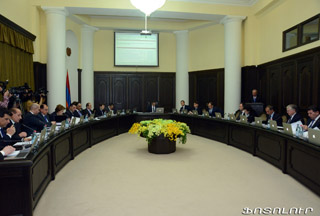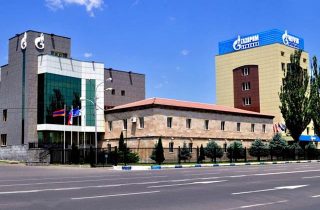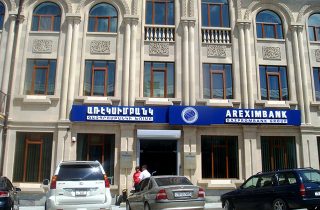How much does it cost to govern us?

The budget draft 2014 is still as mystical as the economic policy of the Armenian government. This is like the decision to join the Customs Union. Neither parliamentary discussions nor experts’ opinions provide substantial information about the topic. Accordingly, what remains to do is trying to figure out what’s happening around us. Unlike the vogue prospect with the Customs Union, the draft budget 2014 has a specific text. It also has long additions and annexes. One may try to find something in it but it is really difficult to find substantial components of economic policy in it. Let’s take the deficit indicator as an example. In 2011 the deficit was around 150 billion drams. During the past years deficit went down. In 2012 it was 133 billion drams, in 2013 – 120 billion drams. For 2014 it is planned at 111 billion drams.
One may think that the government’s policy is aimed at easing foreign debt. International financial institutions pay attention to this issue too. This issue is important even for developed countries. They still consider it important but find ways not to obey it. They find ways to bypass it but make others to cut down the budget deficit as much as they can. Accordingly, for those who criticize the budget it is not difficult to explain that this decision does not depend on the government as from year to year it is becoming more difficult for the Armenian government to hammer out loans from international institutions. Accordingly, it is important to know how the budget 2014 is going to be spent. This is important also in consideration of the fact that the effects of the international crisis, inflation and slow economic growth in Armenia are worrisome.
The expense part in the budget 2013 was more that its previous year by 7%, and this year it is planned to increase the expense part by 9%. Times of double-digit economic growth are gone, and every year it costs more expensive to govern us. The impact of emigration should be taken into account, too. State institutions planned their expenses in 2013 according to the allowed limits. For example, the parliament planned 10% higher expense, the president’s office – 9%, and the government – 10% higher expenses. In 2013 the expenses the executive power made were higher by 9,2% than one year before. According to the draft budget 2014, the executive power’s expenses will grow by 19%. The expenses of other government institutions will grow by 8-9%.
The legislative body expects to get 3,600 billion drams for spending (in 2013 it was 2,84 billion). The president’s office is planning to spend 3,2 billion drams (instead of 2.9 billion in 2013). The cumulative expense part of the executive power will be 9 billion instead of last year’s 7,4 billion. General administration expenses are a large portion in the budget – 211 billion drams. The budget will provide additional 82 billion drams for public security and judicial expenses. In conclusion, in order to govern us, keep us safe, free of crimes, write and adopt laws, protect from hooligans and betrayers, the government will spend 24% of the budget (293,5 billion drams). If a stranger looks at the draft budget 2014, the first impression will be that we are a hardly manageable nation with bad legislation.
By Ara Galoyan

























